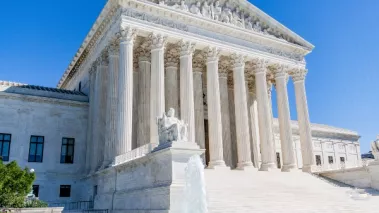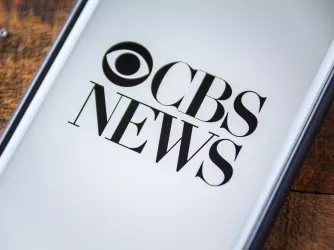Table of Contents
FIRE and Cato Institute file friend-of-court brief with Supreme Court in Uzuegbunam v. Preczewski

May a public university escape judicial sanction for violating a student’s First Amendment rights by changing its unconstitutional speech code after the student files suit?
In an amici curiae (“friends of the court”) brief filed with the Supreme Court of the United States this week, FIRE and the Cato Institute urged the Justices to answer, “No.”
The Supreme Court agreed in July to take the case of Uzuegbunam v. Preczewski, which turns on whether students may still vindicate their First Amendment rights by pursuing “nominal damages” — a small, symbolic amount of money — after their public institution unilaterally changed the speech codes used to censor student speech after they filed suit.
That’s what Georgia Gwinnett College student Chike Uzuegbunam has tried to do since being silenced on his campus. As Cato’s Ilya Shapiro writes:
Chike decided to share his beliefs, through one-on-one conversations and handouts, in a large plaza outside the library. Campus police ordered him to stop. They informed him that he could only speak in designated “speech zones.” Chike applied for permission to use a zone, but could only speak briefly before campus police again accosted him. This time he was told that his speech was “disorderly conduct,” which is any speech that causes discomfort, as judged subjectively by whoever might be listening. The police threatened Chike with prosecution and he was frightened into silence.
Despite the clear constitutional violation, Georgia Gwinnett has escaped liability by changing their policy after Uzuegbunam and his fellow student Joseph Bradford sued. Because the unconstitutional policy was no longer in effect — and despite the fact that Uzuegbunam sought symbolic damages for the violation of his rights — the lower court dismissed the case as moot. The Eleventh Circuit upheld the lower court’s ruling, holding that a claim for nominal damages cannot survive when an offending policy has been changed or the student has graduated.
The Eleventh Circuit’s ruling threatens student rights. Without damages claims to hold schools accountable, graduating students lose the ability to vindicate their First Amendment rights, and schools can quickly moot lawsuits by changing their policies. As FIRE and Cato explain, the Eleventh Circuit’s ruling “fails to appreciate that the deprivation of a constitutional right is an injustice irrespective of whether it results in monetary loss.” As we wrote:
Correcting the Eleventh Circuit’s error is all the more important because colleges and universities across the country routinely infringe students’ First Amendment and other civil rights. Vague and overbroad campus speech policies abound. These policies grant campus administrators discretion to suppress and punish a stunning range of speech deemed controversial, inconvenient, or simply unwanted. Amici have witnessed this troubling trend firsthand: They have received thousands of reports of censorship on public college and university campuses and have defended students and faculty in hundreds of cases nationwide. Compounding the problem is the propensity of colleges and universities to re-institute speech restrictions after executing settlement agreements that require the restrictions to be eliminated. Reversal of the judgment below is necessary to protect students’ ability to hold colleges and universities accountable and to vindicate their priceless constitutional rights.
This week’s brief is the fourth FIRE has filed in the Uzuegbunam case as it makes its way through the courts. FIRE has previously weighed in on appeal to the Eleventh Circuit, in support of rehearing en banc, and in support of the Supreme Court agreeing to hear the case.
FIRE and Cato’s brief was authored by FIRE Legal Network member Kevin King and his colleagues Tarek Austin and Jack Lund at Covington & Burling, LLP. We are extremely grateful for their assistance.
You can read FIRE's full brief below:
Recent Articles
FIRE’s award-winning Newsdesk covers the free speech news you need to stay informed.

The FCC's show trial against CBS is a political power play

UPDATE: Another federal appeals court backs academic free speech for public employees

Feds to Columbia: ‘You want $400 million in contracts back? Do this (or else)’
